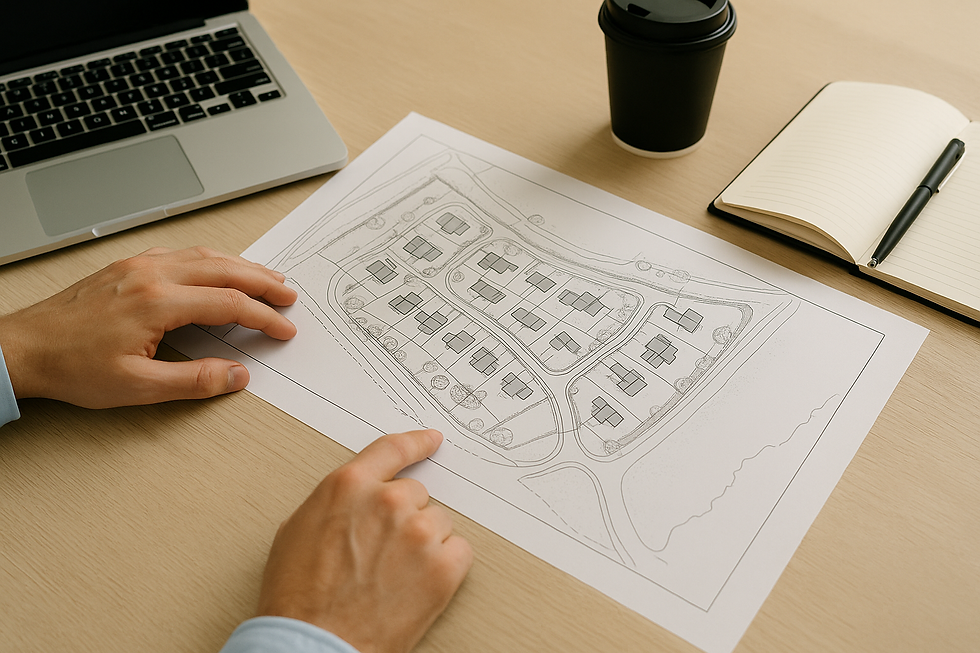Discover the Benefits of Eco-Friendly Garden Rooms
- Ty Green Ltd.

- Aug 13, 2025
- 4 min read
Sustainability in construction isn’t just a buzzword, it’s the foundation of creating buildings that last, perform well, and tread lightly on the planet. When it comes to garden rooms, the materials you choose have a direct impact on their environmental footprint, durability, and the health of the space inside. By using eco-friendly home materials, it’s possible to achieve a balance between style, comfort, and long-term performance, while also supporting local craftsmanship and responsible sourcing.
Why Choose Eco-Friendly Home Materials?
Choosing eco-friendly home materials means selecting products that have a minimal impact on the environment throughout their lifecycle. This includes how they are sourced, manufactured, and disposed of. For garden rooms, this approach can make a significant difference.
Here are some key reasons to consider eco-friendly materials:
Sustainability: Materials like sustainably harvested timber or recycled composites reduce deforestation and waste.
Energy Efficiency: Natural insulation materials help maintain comfortable temperatures, reducing heating and cooling needs.
Health Benefits: Eco-friendly materials often avoid harmful chemicals, improving indoor air quality.
Longevity: Many sustainable materials are highly durable, meaning your garden room will last longer with less maintenance.
Aesthetic Appeal: Natural materials bring warmth and character to your outdoor space.
For example, using reclaimed wood for cladding or flooring not only looks stunning but also gives new life to materials that might otherwise be discarded. Similarly, natural insulation like sheep’s wool or hemp can keep your garden room cosy without relying on synthetic products.

Practical Eco-Friendly Materials for Garden Rooms
When building or renovating a garden room, the choice of materials is crucial. Here are some practical eco-friendly options that combine sustainability with functionality:
Timber from Sustainable Sources
Timber is a popular choice for garden rooms. When sourced from certified sustainable forests, it supports responsible forestry practices. Look for certifications like FSC (Forest Stewardship Council) or PEFC (Programme for the Endorsement of Forest Certification).
Benefits: Renewable, biodegradable, and excellent for insulation.
Tips: Choose locally sourced timber to reduce transportation emissions.
Recycled and Reclaimed Materials
Using recycled or reclaimed materials reduces waste and the demand for new resources. This can include bricks, tiles, or even metal fixtures.
Benefits: Unique character and reduced environmental footprint.
Tips: Inspect reclaimed materials carefully to ensure they are safe and in good condition.
Natural Insulation
Insulation is vital for comfort and energy efficiency. Natural options include:
Sheep’s wool
Hemp fibre
Cork
Cellulose (recycled paper)
These materials are breathable, non-toxic, and often have excellent thermal properties.
Low-VOC Paints and Finishes
Volatile Organic Compounds (VOCs) in paints and finishes can harm indoor air quality. Opt for low-VOC or natural alternatives to keep your garden room healthy.
Benefits: Reduced chemical exposure and better air quality.
Tips: Look for products labelled as low-VOC or zero-VOC.
Green Roofing Options
Green roofs, covered with vegetation, provide insulation and help manage rainwater. They also create habitats for wildlife.
Benefits: Improved insulation, biodiversity, and stormwater management.
Tips: Ensure your garden room structure can support the additional weight.

How Eco-Friendly Garden Rooms Support Sustainability
Sustainability is more than just materials. It’s about the whole approach to design, construction, and use. Eco-friendly garden rooms contribute to sustainability in several ways:
Reduced Carbon Footprint: Using local, renewable materials cuts down on transportation and manufacturing emissions.
Energy Savings: Good insulation and natural ventilation reduce energy consumption.
Waste Reduction: Reusing materials and careful planning minimise construction waste.
Biodiversity: Incorporating plants and natural landscaping supports local wildlife.
Longevity and Adaptability: Well-built garden rooms can be adapted or repurposed, reducing the need for new builds.
By choosing eco-friendly garden rooms, you’re investing in a space that respects the planet while enhancing your lifestyle. These rooms can serve as offices, studios, or relaxing retreats, all while being kind to the environment.

Tips for Creating Your Own Sustainable Garden Room
If you’re inspired to create your own eco-friendly garden room, here are some practical tips to get started:
Plan Thoughtfully: Consider the room’s purpose, size, and location to maximise natural light and ventilation.
Choose Local Materials: Support local suppliers and reduce transport emissions.
Prioritise Insulation: Invest in natural insulation to keep the space comfortable year-round.
Use Renewable Energy: If possible, add solar panels or other renewable energy sources.
Incorporate Water Efficiency: Use rainwater harvesting or water-saving fixtures.
Work with Experts: Collaborate with builders who specialise in sustainable construction.
By following these steps, you can create a garden room that is both beautiful and environmentally responsible.
Embracing a Greener Future with Garden Rooms
Building or upgrading a garden room with eco-friendly home materials is a rewarding choice. It reflects a commitment to sustainability and quality. These spaces offer more than just extra room - they provide a connection to nature and a healthier environment.
Whether you want a quiet workspace, a creative studio, or a peaceful retreat, an eco-friendly garden room can meet your needs while supporting the planet. With thoughtful design and sustainable materials, your garden room will be a lasting asset.
For those looking to combine sustainability with quality, Tŷ Green Ltd. creates outdoor spaces that are built to last and designed to be lived in. By prioritising locally sourced materials and skilled craftsmanship, every project delivers low environmental impact without compromising on style or comfort.
By choosing sustainable solutions, we can all contribute to a greener future - one garden room at a time.



Comments